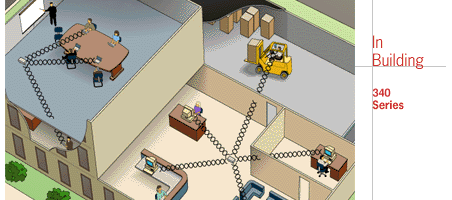
TOWARDS A COLLABORATIVE WORKSPACE FOR SENIOR DESIGN

Joseph Picone and Michael Lane
Department of Electrical and Computer Engineering
Mississippi State University
email: picone@cavs.msstate.edu, lane@ece.msstate.edu
We have recently made significant progress towards enhancing the
senior design experience for undergraduates in ECE. Two key changes
relevant to this proposal are: (1) a requirement to work in teams,
typically consisting of three to four students, on large-scale
projects; (2) a rigorous documentation process that includes
documentation of all aspects of the project via a web site. In
conjunction with this, the department has recently modified its
computer requirement to specifically require laptops. This is an
acknowledgement of the increasing importance of mobile computing to
the educational process.
Senior design students have embraced these changes, and now openly
acknowledge the importance of working in a collaborative environment.
One instantiation of this is often seen around Simrall these days -
students working in a cluster around a couple of laptops generating
documentation. Few of our labs are designed for such a collaborative
learning environment, since most of our labs are designed to provide
single-student workspaces or lab benches for hardware experimentation.
Hence, it is clear we need to seriously think about migrating our
environment to a situation where students are connected in a wireless
fashion to the network while they roam the building. This will allow
students to take maximum advantage of Simrall facilities, yet not require
additional wiring of the building. It will provide them with an
ability to interact in groups anywhere in the building, and also
interact with their project web sites, on-line documentation, etc.
Our proposal also offers a unique opportunity to pull together
computing expertise in ITS (Systems and Networks), ECE (Michael Lane),
and ISIP (Joe Picone) to pilot the use of wireless networks in
Simrall. All three organizations have an interest in this technology,
and are extremely keen on participating in a pilot study. ITS's
involvement is particularly crucial, since they have already begun
evaluating this technology.
We propose the following pilot study of wireless networking in Simrall:
- establish a wireless LAN covering Simrall in coordination with ITS;
- loan PCMCIA-based wireless network cards to Senior Design students
in Fall'00 and Spring'01 (one card per team) for use with student
laptops;
- create the necessary networking infrastructure to allow these
students to roam the building and its immediate vicinity while
connected to the network;
- assess the impact of this technology through exit interviews with
the students.
Note that in addition to these costs, ECE is renovating its Senior Design
lab to provide interaction areas more conducive to team-related projects.
Wireless networking is still in its infancy. There are some technical
issues involved in this project. Namely, hardware is still evolving
in terms of functionality, standards, and extensibility. Base station
location will take experimentation to determine how best to cover
the building. Bandwidth, contention, and other such networking
issues must be carefully studies since this technology currently
only supports an aggregate bandwidth of 11 MBits/sec. Integration
of palmtop computers is a logical next step. The proposed
pilot study will be the first of its type at MS State, and help
us maintain our leadership position in computing and networking
infrastructure. Some of this work should be publishable in the
appropriate engineering education journals.
Questions or comments about the material presented here can be
directed to the authors at the email addresses above, or to
ies_help@cavs.msstate.edu.


